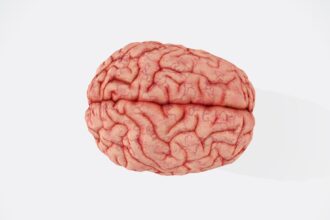To truly grasp the importance of managing stress and anxiety, it is essential to understand the role of the nervous system in your body. The nervous system is a complex network that controls and coordinates your bodily functions, responding to internal and external stimuli. It consists of two main parts: the central nervous system (CNS), which includes the brain and spinal cord, and the peripheral nervous system (PNS), which connects the CNS to the rest of your body.
This intricate system is responsible for everything from reflexes to emotional responses, making it a critical player in how you experience stress. When you encounter a stressful situation, your body activates the sympathetic nervous system, triggering the “fight or flight” response. This reaction prepares you to either confront or flee from perceived threats, releasing hormones like adrenaline and cortisol.
While this response can be beneficial in short bursts, chronic activation can lead to a host of health issues, including anxiety disorders, depression, and cardiovascular problems. Understanding this mechanism empowers you to take proactive steps in managing stress, allowing you to regain control over your emotional and physical well-being.
Key Takeaways
- The nervous system plays a crucial role in regulating stress and anxiety levels in the body.
- Deep breathing techniques can help calm the nervous system and reduce feelings of stress and anxiety.
- Mindfulness and meditation practices can help individuals become more aware of their thoughts and emotions, leading to better stress management.
- Progressive muscle relaxation involves tensing and then relaxing different muscle groups to reduce physical tension and promote relaxation.
- Grounding techniques, such as focusing on the present moment or using sensory objects, can help individuals feel more connected and less anxious.
Deep Breathing Techniques
One of the most effective ways to counteract the stress response is through deep breathing techniques. When you focus on your breath, you can activate the parasympathetic nervous system, which promotes relaxation and calmness. To practice deep breathing, find a comfortable position, either sitting or lying down.
Close your eyes and take a slow, deep breath in through your nose, allowing your abdomen to expand fully. Hold that breath for a moment before exhaling slowly through your mouth. Repeat this process several times, concentrating on the rhythm of your breath.
As you engage in deep breathing, you may notice a shift in your mental state. The act of focusing on your breath can help clear your mind of racing thoughts and distractions. This simple yet powerful technique can be practiced anywhere—whether you’re at home, at work, or even in a crowded public space.
Mindfulness and Meditation

Mindfulness and meditation are practices that encourage you to be present in the moment, fostering a sense of awareness and acceptance. Mindfulness involves paying attention to your thoughts, feelings, and sensations without judgment. You can practice mindfulness in various ways, such as through mindful eating, walking, or simply observing your surroundings.
By cultivating mindfulness, you can develop a deeper understanding of your stress triggers and learn to respond to them more effectively. Meditation takes mindfulness a step further by providing a structured approach to quieting the mind. You might choose to sit in silence, focus on your breath, or use guided meditations available through apps or online resources.
Regular meditation practice has been shown to reduce anxiety levels and improve overall mental health. As you become more adept at these techniques, you’ll likely find that you can maintain a sense of calm even in challenging situations.
Progressive Muscle Relaxation
| Progressive Muscle Relaxation Metrics | Results |
|---|---|
| Stress Reduction | Significant decrease |
| Anxiety Levels | Reduced |
| Sleep Quality | Improved |
| Muscle Tension | Decreased |
Progressive muscle relaxation (PMR) is another effective technique for managing stress and anxiety. This method involves systematically tensing and relaxing different muscle groups throughout your body. Start by finding a quiet space where you can sit or lie down comfortably.
Begin with your feet; tense the muscles for a few seconds before releasing them completely. Gradually work your way up through your legs, abdomen, arms, and face. As you progress through each muscle group, pay attention to the contrast between tension and relaxation.
The beauty of PMR lies in its ability to help you become more aware of physical sensations associated with stress. Often, you may not realize how much tension you’re holding in your body until you consciously release it. By practicing PMR regularly, you can develop a greater sense of body awareness and learn to recognize when stress is building up.
This awareness allows you to take proactive steps to alleviate tension before it escalates into more significant issues.
Grounding Techniques
Grounding techniques are designed to help you reconnect with the present moment when feelings of anxiety or overwhelm arise. These strategies can be particularly useful during moments of panic or distress. One popular grounding technique is the “5-4-3-2-1” exercise, which encourages you to engage your senses.
Start by identifying five things you can see around you, then four things you can touch, three things you can hear, two things you can smell, and finally one thing you can taste. This exercise helps anchor you in reality and distracts your mind from anxious thoughts. Another grounding technique involves visualization.
Picture yourself in a serene environment—perhaps a beach or a forest—where you feel safe and at ease. Close your eyes and immerse yourself in this mental image, focusing on the details: the sound of waves crashing or the scent of pine trees. By using these grounding techniques, you can create a mental refuge that allows you to regain control over your emotions and reduce feelings of anxiety.
Physical Activity and Exercise

Engaging in regular physical activity is one of the most effective ways to combat stress and improve your overall mental health. Exercise releases endorphins—natural mood lifters that can help alleviate feelings of anxiety and depression. Whether it’s going for a brisk walk, hitting the gym, or participating in a dance class, finding an activity that you enjoy is key to making exercise a consistent part of your routine.
In addition to boosting your mood, physical activity also provides an opportunity for mindfulness. As you focus on your movements and breathing during exercise, you can cultivate a sense of presence that helps clear your mind of stressors. Aim for at least 30 minutes of moderate exercise most days of the week; this commitment not only enhances your physical health but also serves as a powerful tool for managing stress.
Healthy Eating Habits
Your diet plays a significant role in how you feel both physically and emotionally. Consuming a balanced diet rich in whole foods—such as fruits, vegetables, whole grains, lean proteins, and healthy fats—can have a positive impact on your mood and energy levels. Conversely, relying on processed foods high in sugar and unhealthy fats may contribute to feelings of anxiety and fatigue.
Incorporating nutrient-dense foods into your meals can help stabilize blood sugar levels and provide essential vitamins and minerals that support brain health. Omega-3 fatty acids found in fish like salmon or walnuts have been linked to reduced symptoms of anxiety and depression. By prioritizing healthy eating habits, you’re not only nourishing your body but also creating a solid foundation for emotional resilience.
Limiting Stimulants
While it may be tempting to reach for caffeine or sugary snacks when you’re feeling stressed or fatigued, these stimulants can exacerbate anxiety symptoms in the long run.
Similarly, excessive sugar consumption can result in energy crashes that leave you feeling irritable or anxious.
To promote better mental health, consider reducing your intake of caffeine and sugar gradually. Instead of relying on these stimulants for energy boosts, explore alternative options such as herbal teas or snacks rich in protein and fiber that provide sustained energy without the crash. By being mindful of what you consume, you’ll create an environment that supports emotional stability.
Establishing a Routine
Creating a daily routine can provide structure and predictability in your life, which is especially beneficial during times of stress or uncertainty. A well-established routine helps regulate your body’s internal clock and promotes healthy habits that contribute to overall well-being. Start by setting specific times for waking up, eating meals, exercising, and winding down for bed.
Incorporating self-care activities into your routine is equally important. Whether it’s setting aside time for reading, journaling, or engaging in hobbies that bring you joy, these moments of self-care allow you to recharge mentally and emotionally. By establishing a routine that prioritizes both responsibilities and self-care, you’ll cultivate resilience against stressors while fostering a sense of balance in your life.
Seeking Professional Help
While self-help strategies can be incredibly effective for managing stress and anxiety, there may be times when seeking professional help is necessary. Mental health professionals—such as therapists or counselors—can provide valuable support tailored to your unique needs. They offer tools and techniques that go beyond self-help methods and can help you explore underlying issues contributing to your anxiety.
If you’re feeling overwhelmed or unable to cope with daily life due to anxiety or stress, don’t hesitate to reach out for help. Therapy provides a safe space for you to express your feelings without judgment while gaining insights into patterns that may be affecting your mental health. Remember that seeking help is not a sign of weakness; rather, it demonstrates strength and commitment to improving your well-being.
Creating a Supportive Environment
Finally, surrounding yourself with supportive individuals is crucial for managing stress effectively. Your social network plays an integral role in how you cope with challenges; having friends or family members who understand what you’re going through can make all the difference. Make an effort to connect with those who uplift you—whether through regular phone calls, video chats, or in-person meetups.
Additionally, consider creating an environment at home that promotes relaxation and comfort. This could involve decluttering spaces that feel chaotic or incorporating calming elements like plants or soothing colors into your decor. By fostering both social connections and a peaceful living environment, you’ll create a strong foundation for managing stress while enhancing your overall quality of life.
In conclusion, managing stress and anxiety requires a multifaceted approach that encompasses understanding the nervous system’s role in emotional responses as well as implementing practical techniques like deep breathing, mindfulness practices, physical activity, healthy eating habits, and establishing routines. By taking proactive steps toward self-care while also recognizing when professional help is needed, you’ll empower yourself to navigate life’s challenges with resilience and grace.
If you’re looking to quickly regulate your nervous system, you might find valuable insights in the article on Unplugged Psych. This resource offers practical techniques and strategies to help calm your nervous system effectively. For a deeper understanding and additional methods, you can explore a related article on their website. Check out this




